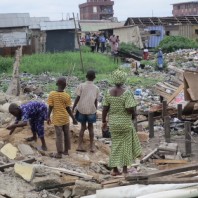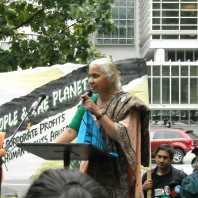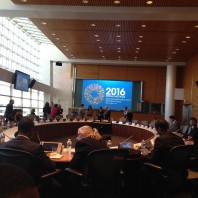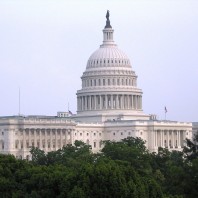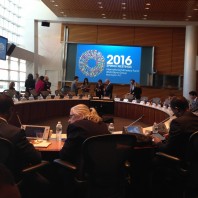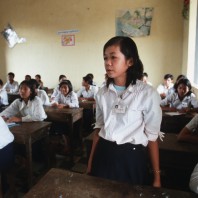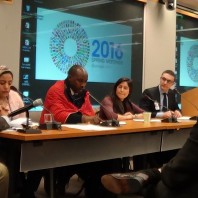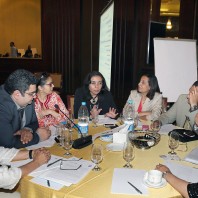International development finance is intended to alleviate poverty by sparking inclusive growth. But without strong protections for local communities, it can exclude and disenfranchise instead. World Bank development projects like dams, roads, and power plants can cause devastating harm to people and the planet. Too many have suffered displacement, loss of livelihoods, pollution, destruction of …
Activist Medha Patkar speaking on resistance to the Sardar Sarovar dam during the 2014 World Bank Annual Meetings. On Tuesday, June 7th, the Tom Lantos Human Rights Commission of the U.S. Congress held a hearing on the advancement of human rights in India. In his opening remarks, Congressman James P. McGovern, Human Rights Commission Co-Chairman, …
New BIC paper by David Shaman The World Bank invests in knowledge to achieve its mission. The primary audience of its knowledge sharing is internal. Knowledge and data informs staff about good practices, country- and sector-specific issues and trends and operational successes and failures. The efficacy of knowledge sharing within the Bank has been a …
Members of the US Senate Foreign Relations Committee have released a letter sent to U.S. Treasury Secretary Jacob Lew calling on Treasury to take the lead in opposing proposed dilutions of the World Bank’s environmental and social safeguard policies. The World Bank is in the final stages of drafting a new set of safeguards that are inconsistent …
Joint letter asks the World Bank to go public with the final draft of its safeguard policies WASHINGTON, DC Today, 69 civil society organizations from 26 different countries asked World Bank management to maintain transparency throughout the ongoing review of its environmental and social policies. The World Bank’s environmental and social safeguard policies have been …
Arif Fiyanto, Climate and energy coordinator at Greenpeace Southeast Asia, published an opinion piece in the Jakarta Post on the future of Indonesian coal, citing BIC’s research on Development Policy Loans. Fiyanto notes that international financiers are continuing to fund the construction of coal plants, despite the declining strength of the coal market relative to …
The UN’s Indigenous Peoples expert bodies sent a joint letter to the President of the World Bank, Dr. Kim Jim, expressing serious concerns with proposed safeguards intended to protect indigenous peoples from harm caused by World Bank projects. The letter’s authors – the UN Special Rapporteur on the Rights of Indigenous Peoples, the Expert Mechanism …
Cambodia. Photo: © Masaru Goto / World Bank The World Bank has long noted that investing in children is the clearest path to reducing poverty. Yet a lack of specific protections for children has led to many years of World Bank projects in Cambodia and around the world with unintended negative impacts. Today, the World …
The World Bank has committed to 100% beneficiary feedback in its projects and aims through its corporate strategy to empower citizens to participate in the development process. At the same time, since 2012 over 60 countries have passed legislation restricting civil society’s ability to freely operate and many communities face intimidation or criminalization when raising …
In December 2015, the World Bank Board of Executive Directors endorsed a new Country Partnership Framework (CPF) for Egypt. The CPF is a collaborative strategy between the World Bank Group (WBG) and the client government which defines the development priorities on which the WBG will build and mobilize their support to Egypt for the period …

